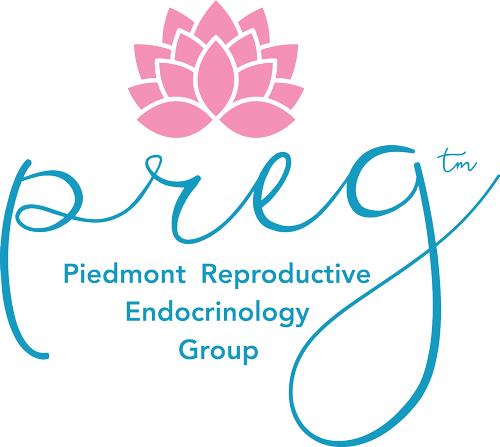Egg freezing, or oocyte cryopreservation, is an increasingly popular option for women looking to preserve their fertility. Whether due to career choices, health concerns, or the desire to wait for the right partner, many women are considering this innovative reproductive technology. At Piedmont Reproductive Endocrinology Group (PREG), we understand that navigating the process can raise numerous questions. In this blog, we answer some of the most frequently asked questions about egg freezing.
What Is Egg Freezing?
Egg freezing is a procedure that involves extracting a woman’s eggs, freezing them, and storing them in labs for future use. This process allows women to delay pregnancy while preserving their fertility. The frozen eggs can later be retrieved, fertilized with sperm, and transferred in the uterus as embryos when the woman is ready to conceive.
Why Would Someone Choose to Freeze Their Eggs?
There are several reasons why women might choose to freeze their eggs. Some of these reasons may include the following factors.
Career and Education: Many women prioritize their education and career development. Freezing eggs provides them the flexibility to start a family later without compromising their professional goals.
Health Concerns: Women facing medical treatments, such as chemotherapy or surgery for reproductive health issues, may choose to freeze their eggs to preserve their fertility before undergoing procedures that could affect their ovaries.
Delayed Parenthood: Some women may want to wait until they find the right partner or feel ready to become a parent and egg freezing offers an option to maintain their fertility during this waiting period.
Age: As women age, the quantity and quality of their eggs decline. Egg freezing can be a proactive measure to ensure higher quality eggs are available for future pregnancies.
How Is the Egg Freezing Process Done?
The egg freezing process typically involves several steps, which are outlined below.
- Consultation: The first step is to meet with a PREG fertility specialist to discuss personal goals and medical history. This consultation includes tests to assess ovarian reserve and overall reproductive health.
- Ovarian Stimulation: Once cleared to proceed, the woman undergoes ovarian stimulation. This involves taking hormone injections for about 10 to 14 days to encourage the ovaries to produce multiple eggs.
- Monitoring: During this period, regular blood tests and ultrasounds are conducted to monitor the response to medication and determine the optimal time for egg retrieval.
- Egg Retrieval: Once the eggs are ready, a minor surgical procedure is performed to retrieve them. This is done under sedation and typically takes less than 30 minutes.
- Freezing: The retrieved eggs are then frozen using a process called vitrification, which prevents the formation of ice crystals that can damage the eggs.
How Long Can Frozen Eggs Be Stored?
Frozen eggs can be stored indefinitely. While some clinics recommend using frozen eggs within 5 to 10 years, advancements in technology mean that eggs can remain viable for much longer. It’s essential to discuss storage options and any policies regarding the duration of egg storage with your PREG fertility clinic.
What Are the Success Rates for Using Frozen Eggs?
Success rates for pregnancies using frozen eggs depend on various factors, including the woman’s age at the time of egg retrieval and the quality of the eggs. Generally, younger women tend to have higher success rates because younger eggs are typically of better quality. It’s crucial to have realistic expectations and discuss potential success rates with your PREG fertility specialist.
Are There Any Risks Involved in Egg Freezing?
Like any medical procedure, egg freezing comes with some risks. One potential issue is Ovarian Hyperstimulation Syndrome (OHSS), which can arise from the hormonal stimulation used to promote egg production. Symptoms of OHSS may include abdominal pain, bloating, and nausea. There is also a risk of infection at the site of egg retrieval, as with any surgical procedure. Additionally, while the egg retrieval process is minimally invasive, the use of anesthesia carries inherent risks, particularly for individuals with certain health conditions.
How Much Does Egg Freezing Cost?
The cost of egg freezing can vary widely based on geographic location and the specific clinic. On average, the initial cycle of egg retrieval and freezing can range from $6,000 to $15,000. This does not typically include ongoing storage fees or the costs associated with future use of the eggs. It’s essential to inquire about all potential costs and payment options with your PREG clinic.
Is Egg Freezing Right for Everyone?
Egg freezing is a personal decision that may not be suitable for every woman. It’s important to consider individual circumstances, health, and reproductive goals. A thorough consultation with a PREG fertility specialist can provide beneficial insights into whether egg freezing aligns with your needs and aspirations.
Final Thoughts on Egg Freezing
Egg freezing is a valuable option for women looking to preserve their fertility for the future. By addressing common questions and concerns, we hope to empower women with the knowledge they need to make informed decisions about their reproductive health. If you have more questions about egg freezing or would like to explore your fertility options, contact Piedmont Reproductive Endocrinology Group to schedule a consultation. Your journey to parenthood is unique and we’re here to support you every step of the way.






